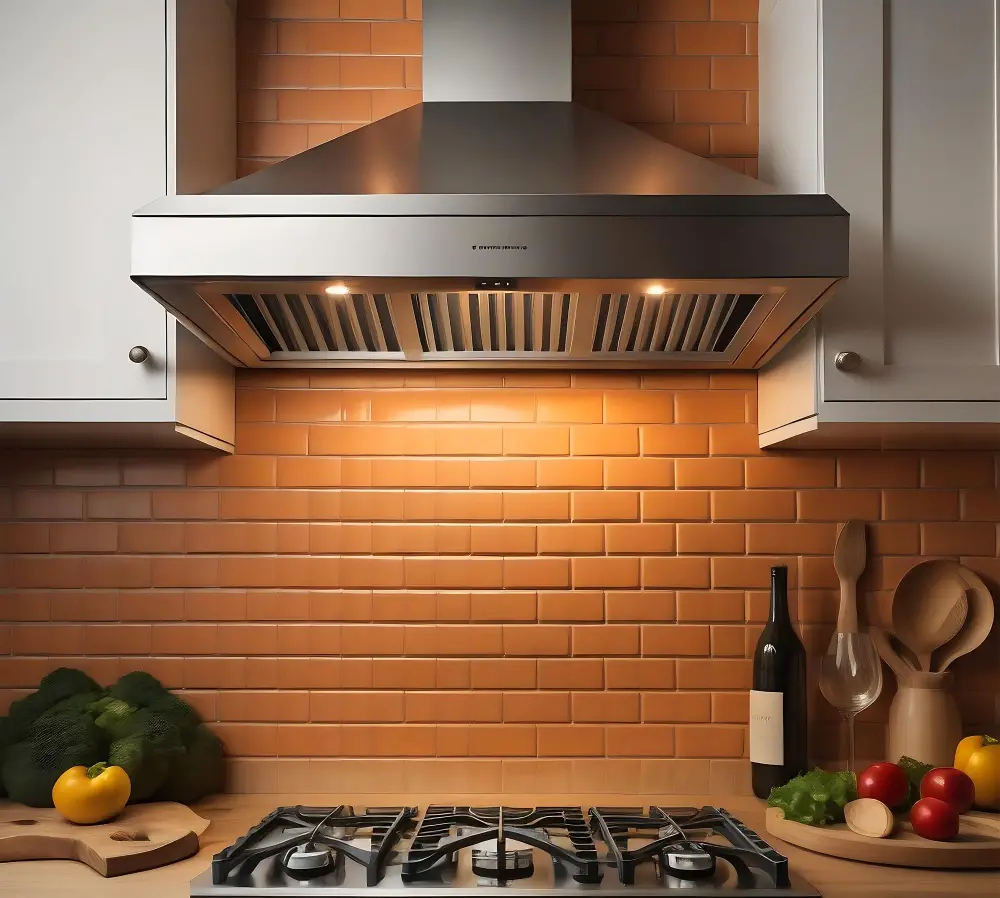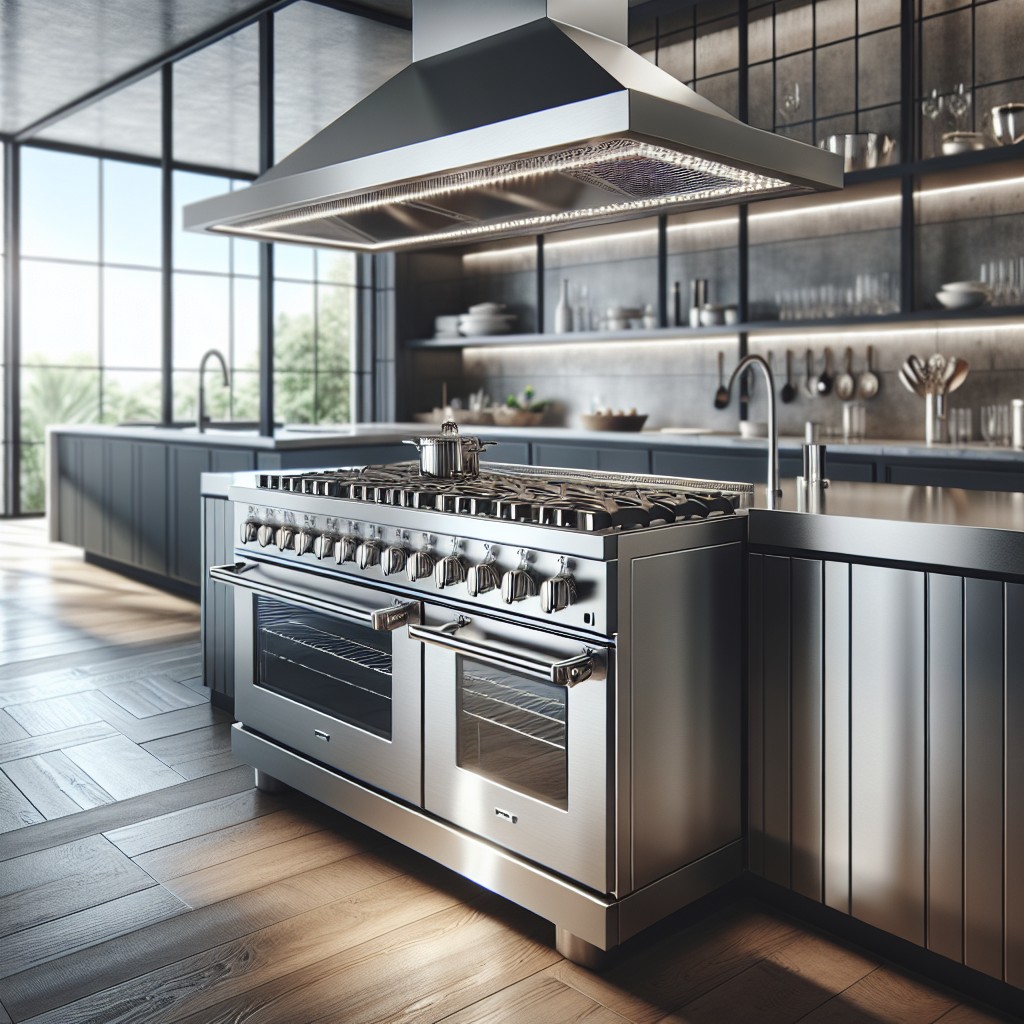Last updated on
Let’s explore the pros and cons of gas and electric cooktops to help you make an informed decision based on your cooking needs.
Whether you’re an aspiring chef or just someone who enjoys cooking for their family, the right cooktop can make all the difference in your culinary adventures.
When it comes to choosing a cooktop, there are two main options – gas or electric. Both have pros and cons, but which is right for you?
Let me take you on a journey through my experiences with gas and electric cooktops to help you make an informed decision that will suit your needs perfectly.
Key takeaways:
- Gas Cooktops: Provide instant heat and precise control, but can be difficult to clean and require a gas line or propane tank.
- Electric Cooktops: Easier to clean and offer quick, even heating, but have slower heat response times and become unusable during power outages.
- Energy Efficiency: Electric cooktops, especially induction ones, are more energy-efficient than gas cooktops.
- Installation and Maintenance: Gas cooktops require gas line connections, while electric ones need an electrical outlet. Maintenance varies based on the cooktop type.
- Safety Features: Both types have safety features – gas cooktops have flame failure devices, and electric ones have hot surface indicators.
What's Inside
Gas Cooktop Pros
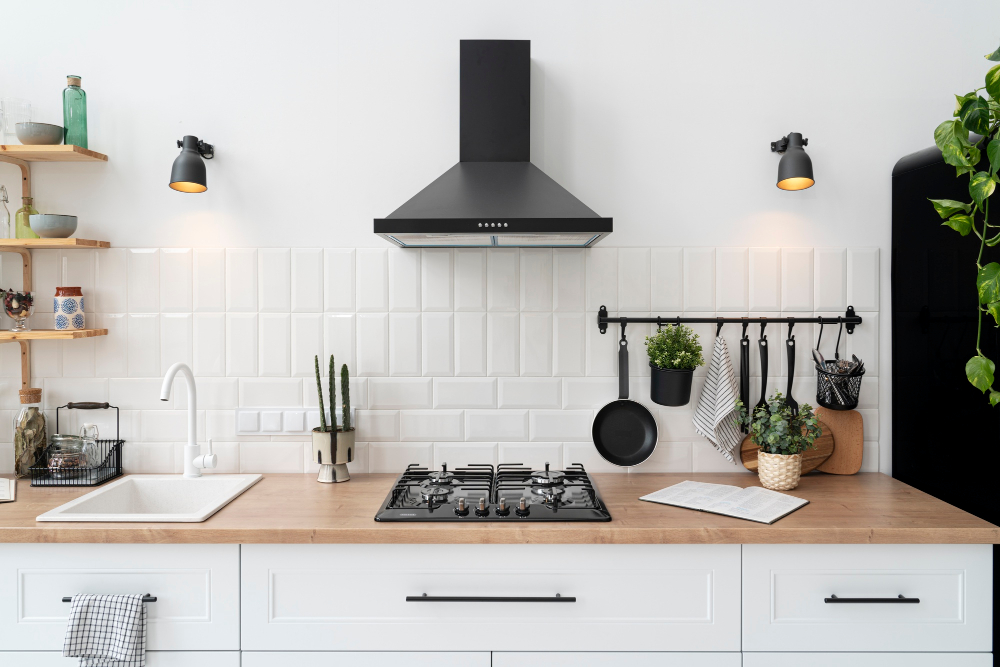
Let’s start with the pros of a gas cooktop. As someone who loves to cook, I have always preferred cooking on gas.
One of the biggest advantages is that it provides instant heat and precise temperature control. With a simple turn of the knob, you can adjust the flame to your desired level and get immediate results.
Another advantage is that gas cooktops are more energy-efficient than electric ones since they use less electricity overall. Plus, if there’s ever an electrical outage in your area, you can still prepare meals using your trusty old stove.
Gas stovetops also offer better cooking performance when compared to their electric counterparts because they distribute heat evenly across pots and pans for consistent results every time.
Lastly, cleaning up after cooking on a gas stove is relatively easy as spills don’t stick or burn onto surfaces like they do with electric stoves’ glass tops or coils.
Suppose you’re looking for quick heating times and precise temperature control while enjoying efficient energy usage along with excellent cooking performance. In that case, choosing a gas cooktop might be perfect for you!
Gas Cooktop Cons
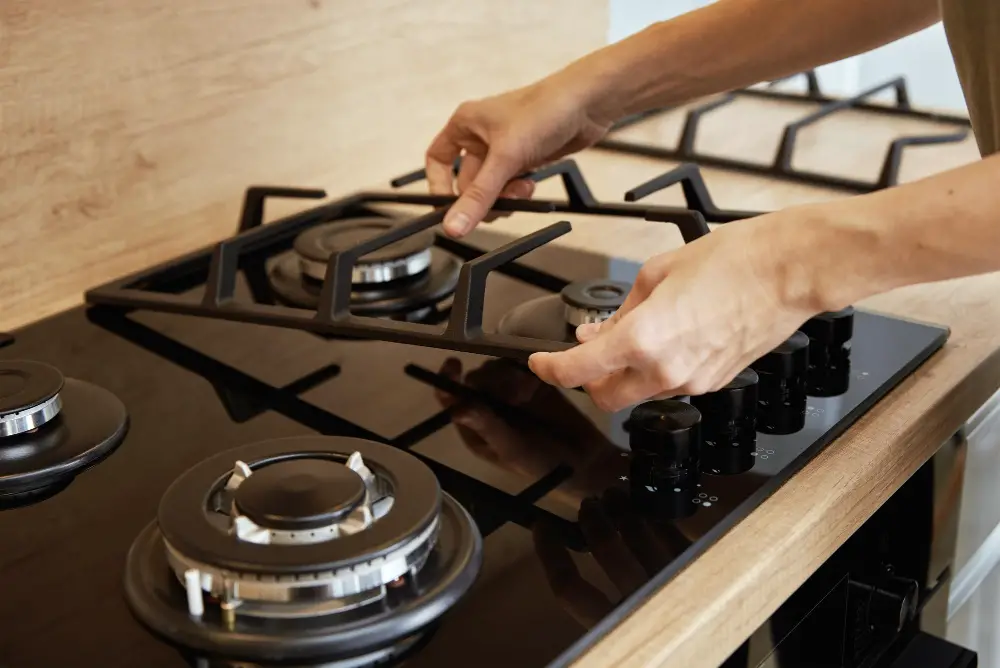
While gas cooktops have their advantages, they also come with some downsides. One of the most significant drawbacks is that they can be more challenging to clean than electric cooktops.
The grates and burners on a gas cooktop can become caked with grease and food particles, making them difficult to remove without using harsh chemicals or scrubbing vigorously.
Another disadvantage of gas cooktops is that they require a natural gas line or propane tank for fuel. This means that if you don’t already have access to one of these fuel sources in your home, you’ll need to install it before you can use a gas stove.
While many people enjoy the instant heat control provided by a flame on a gas burner, others find it difficult to achieve consistent temperatures when cooking delicate dishes like sauces or custards.
Despite these cons, many professional chefs still prefer cooking with natural flames because it allows them greater control over their dishes’ heat levels.
Ultimately whether you choose an electric or gas cooktop will depend on your personal preferences and needs as well as budget constraints
Electric Cooktop Pros

Electric cooktops have come a long way in recent years and offer several advantages over gas cooktops. One of the most significant benefits is that electric cooktops are easier to clean than their gas counterparts.
With no grates or burners to remove, cleaning an electric cooktop is as simple as wiping it down with a damp cloth.
Another advantage of electric cooktops is that they heat up quickly and evenly. Unlike gas burners, which can take some time to reach the desired temperature, electric elements start heating up immediately after being turned on.
Many modern electric models feature advanced technology such as touch controls and timers for precise cooking control. Some even have built-in sensors that adjust the temperature automatically based on what you’re cooking.
If you prioritize ease of use and convenience in your kitchen appliances while still getting great results from your cooking efforts then an electric cooktop might be just right for you!
Electric Cooktop Cons
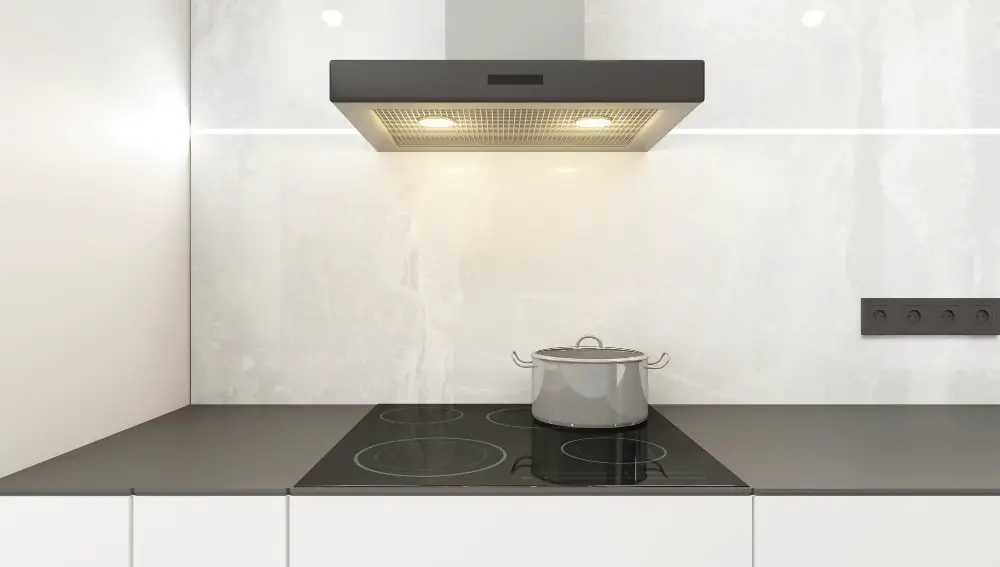
While electric cooktops have their advantages, they also come with some downsides. One of the most significant drawbacks is that they take longer to heat up and cool down than gas cooktops.
This can be frustrating for those who want to start cooking right away or need precise temperature control.
Another disadvantage of electric cooktops is that they are less responsive than gas models. When you turn the dial on a gas stove, the flame adjusts immediately, giving you instant feedback on your settings.
With an electric stove, there’s often a delay between adjusting the temperature and seeing any changes in heat output.
If experience a power outage or other electrical issues in your home while using an electric cooktop. In that case, it will become unusable until power is restored – unlike with gas stoves which can still be used manually during such situations.
Despite these cons though; modern-day technology has made great strides towards improving these shortcomings making them more efficient and user-friendly compared to older models from years past
Energy Efficiency Comparison
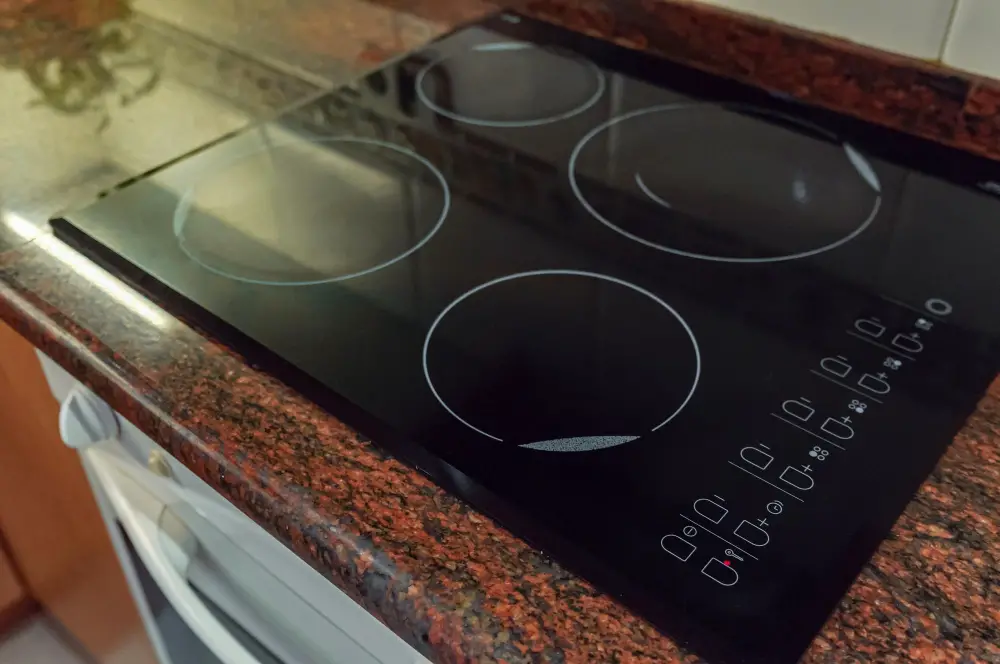
When it comes to energy efficiency, electric cooktops are the clear winner. They convert almost all of the electricity they use into heat, making them more efficient than gas cooktops.
Gas cooktops lose a significant amount of heat through their burners and require more fuel to produce the same amount of heat as an electric stove.
However, it’s important to note that not all electric stoves are created equal in terms of energy efficiency. Induction cooktops are even more efficient than traditional electric stovetops because they use magnetic fields to directly transfer heat to your pots and pans instead of heating up a burner first.
So if you’re looking for an eco-friendly option that will save you money on your utility bills in the long run, consider investing in an induction stove top or a high-efficiency traditional electric model over gas.
Installation and Maintenance
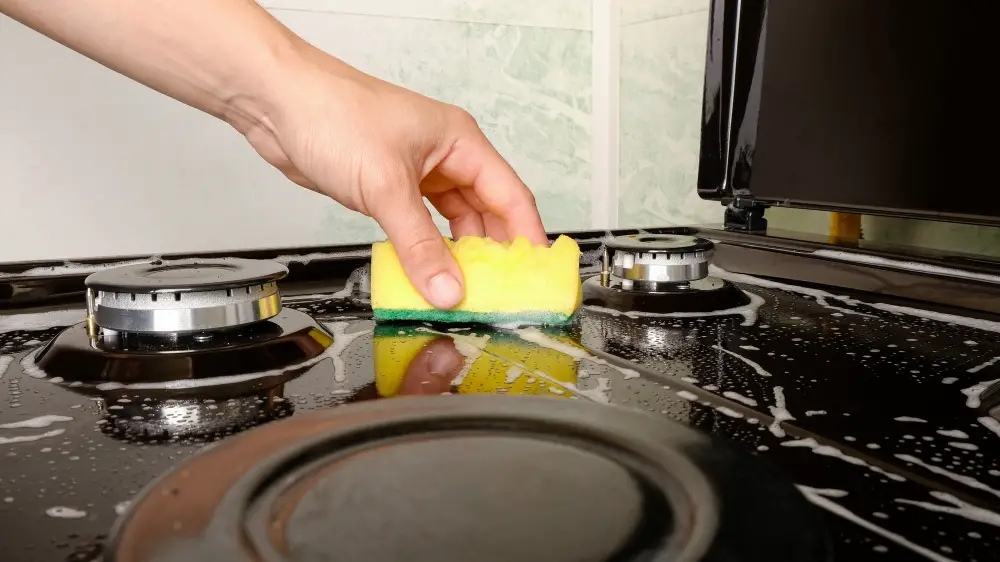
Once you have decided on the type of cooktop that suits your needs, it’s time to think about installation and maintenance.
Gas cooktops require a gas line connection, which can be costly if one is not already in place. On the other hand, electric cooktops only need an electrical outlet nearby.
When it comes to maintenance, both types of cooktops require regular cleaning and upkeep. However, gas burners tend to accumulate more grime due to their open flame design.
Electric coils or smooth tops are easier to clean but may scratch over time.
It’s important also for homeowners who opt for a gas stove top should ensure proper ventilation as they produce carbon monoxide when burning fuel which could lead up-to health hazards if not properly ventilated.
Overall, installation cost and ongoing maintenance expenses should be considered before making any final decisions on choosing between these two options
Safety Features
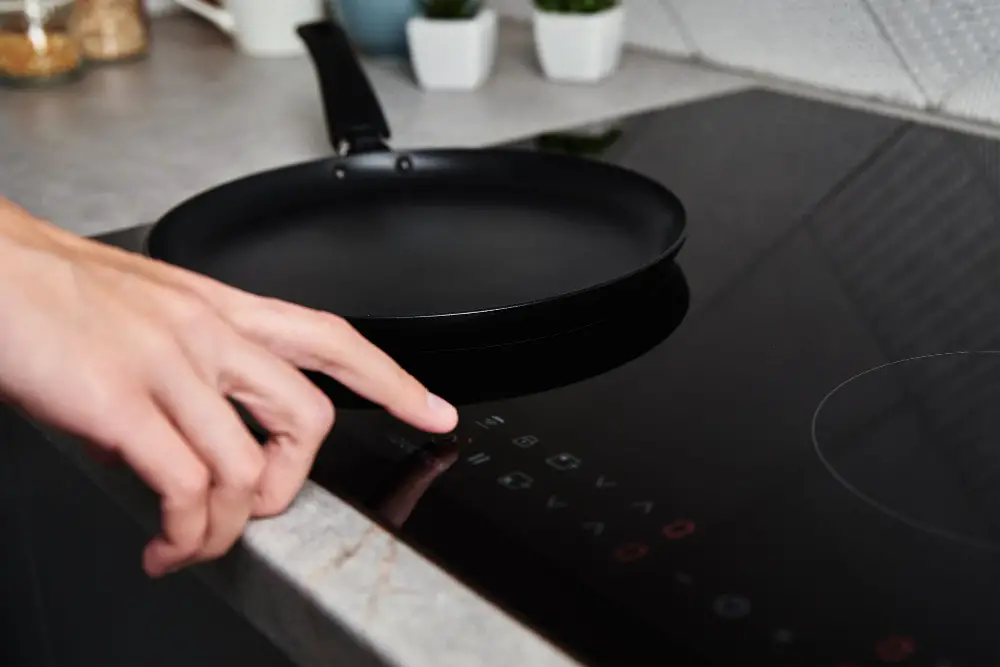
When it comes to cooking, safety should always be a top priority. Both gas and electric cooktops come with their own set of safety features that you should consider before making your final decision.
Gas cooktops typically have flame failure devices that automatically shut off the gas supply if the flame goes out. This is an important feature as it prevents any potential gas leaks in case you forget to turn off the burner or accidentally extinguish the flame while cooking.
On the other hand, electric cooktops usually have hot surface indicators that warn you when a burner is still hot even after being turned off. This helps prevent accidental burns and ensures your kitchen remains safe for everyone, especially children who may not understand how dangerous a hot stove can be.
Ultimately, both types of cooktops offer various safety features designed to keep you and your family safe while cooking in your home. It’s up to personal preference which one suits best for individual needs but considering these factors will help make an informed decision on what type of cooker would work best for them!
Cooking Performance

Gas cooktops offer instant heat control, which is essential for tasks like searing meat or sautéing vegetables.
The open flame also provides a visual cue that helps you gauge the temperature of your pan.
On the other hand, electric cooktops provide consistent heat across the entire surface of the burner. This makes them ideal for tasks that require even heating such as simmering sauces or melting chocolate.
It’s important to note that some types of cookware work better on gas versus electric burners and vice versa. For example, cast iron pans perform well on gas stovetops because they can handle high temperatures without warping while copper-bottomed pots are more efficient on an electric stove since they conduct heat evenly across their base.
Ultimately, when choosing between a gas or an electric stove based on cooking performance alone will depend largely upon personal preference and what type of dishes you plan to prepare most often in your kitchen.
Cost Comparison
Here’s a cost comparison of gas vs. electric cooktops:
- Purchase Cost: Electric cooktops are typically less expensive to purchase than gas cooktops, by as much as 15%.
- Operating Cost: When it comes to operating costs, gas is usually cheaper than electricity for powering gas-compatible appliances. Natural gas and propane rates are generally competitive with electricity rates, but these rates can vary greatly by region. If you’re using gas, you’re automatically making the ecologically friendly choice as gas is a more efficient heating fuel than electricity. However, to understand the cost implications in your specific area, you’ll need to obtain rate information from your local utilities or energy retailers and do some calculations.
- Conversion Cost: If you’re considering switching from an all-electric home to gas, or vice versa, there are significant costs involved. Converting a home typically costs at least several hundred dollars, and it may even cost a few thousand in challenging conversions. These costs can include installing new gas lines or electrical circuits, as well as the cost of new appliances. While it’s true that converting certain appliances to natural gas can eventually pay for itself in utility savings, it could take several years to recoup the cost of installing new gas lines and buying gas appliances.
While gas cooktops may be slightly more efficient to run, the difference in energy costs can be negligible depending on how much you cook. However, the cost can increase substantially if you need to retrofit your house to accommodate the new fuel or power source.
Continue reading:

